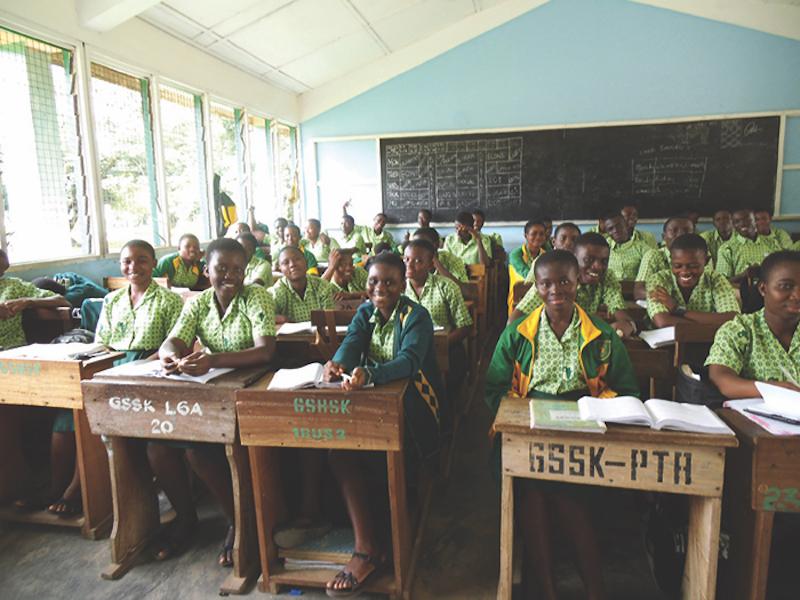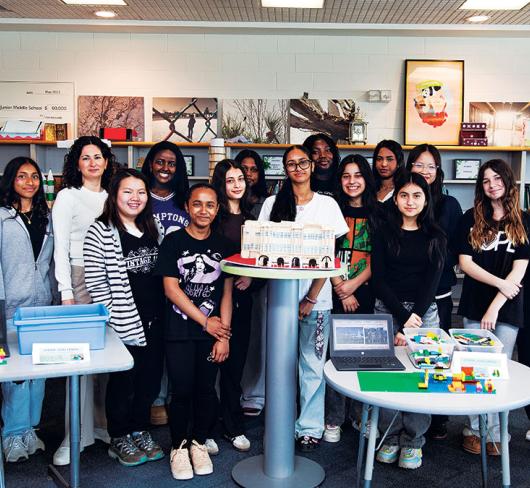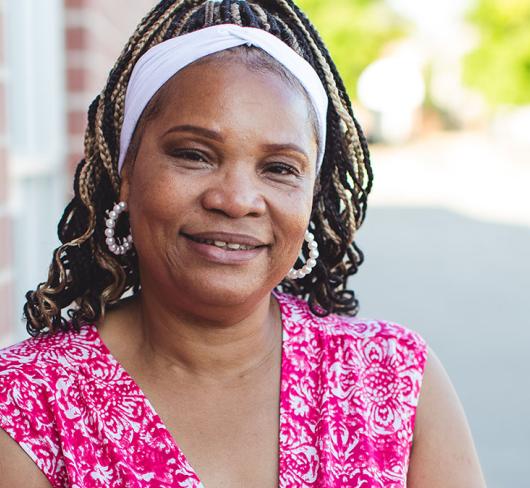
Project Overseas: Opportunities in Global Educational Leadership
Project Overseas. These words hung in the back of my mind for almost a decade. At the Thanksgiving table in 2007, I explained to my family how PO, as it is affectionately called, sends Canadian teachers to work internationally to deliver in-service to untrained and undertrained teachers. I described how every summer over 50 teachers head to countries in Africa, Asia, the Pacific and the Caribbean and how, as an ETFO member, I could play a role in helping children around the world have access to trained teachers through this Canadian Teachers’ Federation program. They listened and nodded. With their blessing, I applied to be one of ETFO’s Project Overseas volunteers for the subsequent year.
I was selected to travel to Mabaruma, Guyana with three other teachers from across Canada. In partnership with teachers from the Guyana Teachers Union (GTU), we delivered workshops to local teachers who travelled from remote Amerindian villages to participate in the two-week project.
Project Overseas often sets up in-service in hinterland regions. It makes sense as an international development project to go where the teachers work. We bring student-centered approaches and practices to help teachers maximize their efforts using locally available resources.
In a classroom with limited electricity, I rediscovered the essence of what it is to be a teacher. I have fond memories of a river of sweat running down my spine as I taught in the humid temperatures of the rainforest. When the daily rain poured down on the school’s tin roof, the noise stopped our lesson in its tracks. I considered how to use this time as part of the lesson. My creative teaching juices were flowing.
The challenges I witnessed changed how I saw my role as a global educator. I returned to Canada with a commitment to promote quality education for all children.
Project Overseas Develops Leadership Skills
Working as a Project Overseas volunteer provides leadership opportunities. After an initial placement, volunteers can re-apply and be selected for team-leader roles. I have led a team to St. Vincent and the Grenadines, and another to Jamaica. This summer I will lead a group of four to St. Kitts and Nevis. I work in an alternative classroom in the Ottawa-Carleton District School Board where many of the students have similar stories to the children living in poverty and surviving violence in Jamaica. Others share a common learning profile with students in St. Vincent who are not progressing at pace with their peers.
Project Overseas participants can become part of a wider network of like-minded educators. I was fortunate to have Taina Jantunen from the Elementary Teachers of Toronto (ETT) on Team St. Vincent and the Grenadines. Taina is someone I think of as a quiet leader. Currently, she spends her days as a Grade 2 teacher following the same students she had in her classroom last year.
Project Overseas Enriches Our Teaching Practice
Taina was placed on Team Sierra Leone in 2012 for the Peace Education project. One of the stories she tells is about when the Canadian teachers watched the opening Olympic ceremonies with their African co-teachers. She describes how the co-teachers had tears of pride in their eyes when they saw African countries on parade.
“The world really knows about us,” said one of the teachers. Taina explains how this remark caught her off guard. “Here, a decade post civil war and my colleague realized that the world did know about his country. We take for granted Canada’s place on the world stage. We see ourselves as a nation and it doesn’t occur to us that other countries might not perceive themselves as equal to us.”
Taina describes her first day as a teacher in Sierra Leone. She was handed a plastic bag of supplies that contained a roll of tape, five pieces of chalk, four markers, some staples (without a stapler), a pad of medium-sized chart paper and half a pack of photocopy paper. This meagre collection was for five weeks of teaching! Taina says that in one moment, her teaching brain changed forever.
“As a teacher now, I am aware of the consumables in my classroom. I teach in a more focused manner. I source my art materials differently. I realize now that my strength as a teacher isn’t what is in my cupboards or on my shelves. It hinges on what is in my brain and the fundamentals I’ve developed.”
Project Overseas Builds International Connections
PO alumni often keep in touch with their colleagues through the internet. Since the Ebola crisis, the stories of loss in Sierra Leone are heartbreaking. However, the stories of survival are inspiring. Teachers who participated in the Canadian Teachers’ Federation’s Project Overseas Peace Education project took lead roles in helping to trace Ebola contacts. These teachers are working to help their communities face and resolve conflicts that can arise in crisis situations using the skills they learned in PO sessions.
Last November, Taina and I, along with many others, participated in the PO Alumni Walk, Show Them We Care, for our West African colleagues. This walk was a visible sign of how Project Overseas inspires us to take action. More than $80,000 donated by Ontario teachers through their ETFO locals has been earmarked for Ebola relief in the Canadian Teachers’ Federation Trust Fund. The money is being used to support our colleagues in West Africa.
One of the leaders of the walk, along with Michael Beetham, was Angie Ortlieb from ETT. Angie has been on two PO teams to Sierra Leone. After her first project in 2008, Angie established a scholarship fund called “Leh We Go Befoh,” which is a Krio phrase that means “Let us go forward.” This fund has sponsored six graduates, with four more teachers in the midst of their studies. This is a sustainable initiative that helps support the selected teachers and their communities.
During her project in 2010, Angie mentioned to Dr. Jacomo Bangura, a co-teacher she worked with in 2008, that she was about to begin graduate work. He encouraged her to return to Sierra Leone to examine how Canadian teaching practices mesh with the culture and education system. Angie spent three months in Sierra Leone conducting the fieldwork for her Master’s thesis. Her research has helped shape a decolonizing approach to the projects and serves as a reference for subsequent teams. Angie has led the ETFO Summer Academy course to share her knowledge on global education and has been a facilitator, along with myself, for the fall debrief for ETFO PO participants.
Project Overseas is a Catalyst for Professional Growth and Change
Carol Peterson, a member of the Kawartha Pine Ridge Teacher Local, teaches grades 4 and 5. Carol first applied to PO in 2004 because she was becoming disheartened by the culture of testing that had replaced a culture of child-centredness and saddened by the loss of meaningful, enjoyable pursuits like choir fests and science fairs. Carol took on the challenge of Project Overseas to put the home experiences in perspective and to remind herself of education’s real purpose – to teach in a way that makes a difference every day.
Carol was part of Teams Guyana 2005, Ghana 2006 and Uganda 2012, and was team leader for Uganda in 2014. As Carol talks about her involvement in PO, her voice becomes animated and passionate. She tells the story of the formal opening ceremonies in Ghana where it is customary for teachers to sing their national anthems. Many Project Overseas participants recall the feeling when they sing our anthem, a cappella, in front of a wider audience. But for Carol, the pivotal moment came when the anthems were finished and her Ghanaian co-teachers clasped her hand to begin the singing of “Solidarity Forever.” In Ontario, this song is rolled out when we gather, often unhappily, at Queen’s Park to raise our voices and concerns to the province. But on this occasion, the song was sung in joy.
Carol has shared her knowledge through curriculum documents. As a co-author of the ETFO resource Educating for Global Citizenship, Carol has contributed ideas on the use of songs in the classroom as a teaching tool. Carol has learned from the best. While Canadian teachers might turn to a Smart board, our overseas colleagues might pull out a musical instrument and teach using a song they have composed the previous evening.
Project Overseas Promotes Women’s Leadership
Shamim Murji, from the Peel Teacher Local, is back in the classroom after two years as an instructional coach. She has participated in two PO projects in Liberia and Ghana, and has worked in her native Uganda through the Aga Khan Foundation. Her voice becomes vibrant when she says, “Every single day I am inspired to love life.”
Shamim recalls the day in Ghana when she brought in hard copies of books that had been created in an earlier PO project. She used these locally created texts as content and modelled lessons for their use. The teachers were moved to tears knowing how excited their students would be to hold their first books. “We take for granted the resources we have in Canada. I remember sitting in my classroom the first day of September, after my project in Liberia. I was grateful for the roof over my head and the windows in my classroom.” It is a common refrain that the PO experience changes the way you look at the educational environment. Our focus tilts to become more about the relationships of teaching.
Shamim has facilitated the gender workshop that is part of every PO project. The mixed male and female Canadian teams are models of equality, whereas in some developing countries there remains a distinct division between gender roles. The gender workshops are powerful opportunities to present a changed worldview. Co-facilitated by local co-tutors and national gender coordinators, the male co-tutors are invaluable as they have the moral authority to counsel their fellow countrymen. A man taking an active role and having a voice in change for women and feminism can have a strong impact on his peers. There are now more women in leadership positions at all levels of organizations such as the Sierra Leone Teachers’ Union and the Ghana National Association of Teachers.
Project Overseas Resets Your Teaching Compass
Our international colleagues do not have access to the same wealth of resources to which we have grown accustomed. It is hard to complain that the photocopier is not working when you have come back from a placement where your teacher colleagues face classes of 90-plus students and limited resources. Imagine walking into a classroom where you are responsible for that many students sitting on benches shoulder-to-shoulder, hip-to-hip. The concrete floors have eroded to expose soil that houses flea-like insects called “jiggers” that burrow into bare feet. The blackboard rests against a wall without chalk. In these circumstances, you have only your creativity and voice to inspire learning in your classroom.
Since its inception by the Canadian Teachers’ Federation in 1962, more than 1,100 Canadian volunteer teachers have had their own teaching practice strengthened and reinvigorated. Each year, roughly 2,000 international colleagues participate in the training. It is a two-way benefit, for the Canadian teachers and overseas participants alike, as we work together to improve the quality of education worldwide. American cultural anthropologist, Margaret Mead, once said, “Never doubt that a small group of thoughtful, committed citizens can change the world; indeed, it’s the only thing that ever has.” As ETFO members, we are fortunate to have the opportunity to join with other Canadian teachers to be part of this physical and metaphorical journey that can indeed shape our lives and influence our teaching.
Deirdre Buckley-McKie is a member of the Ottawa-Carleton Teacher Local.

